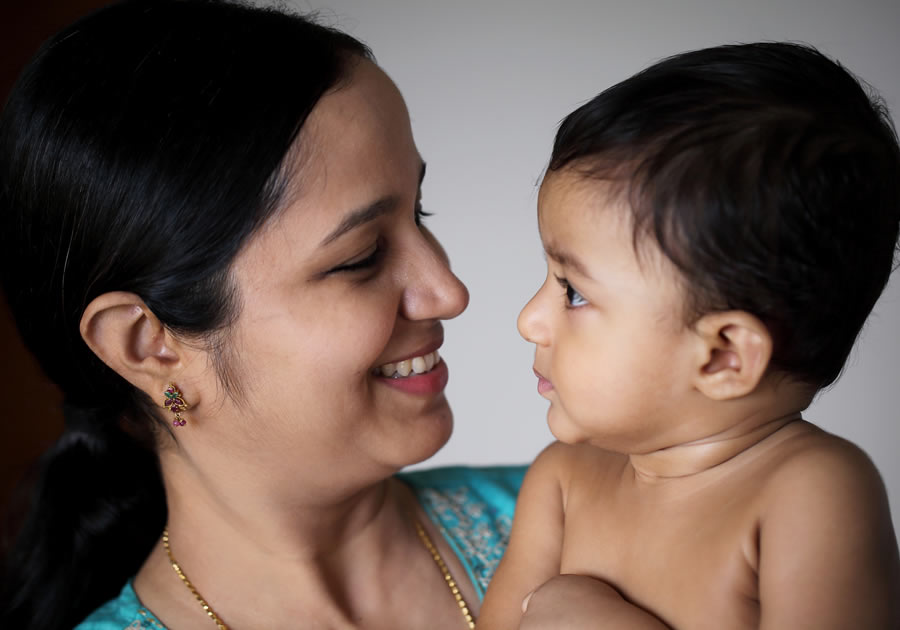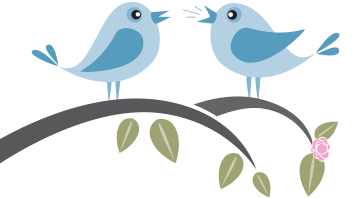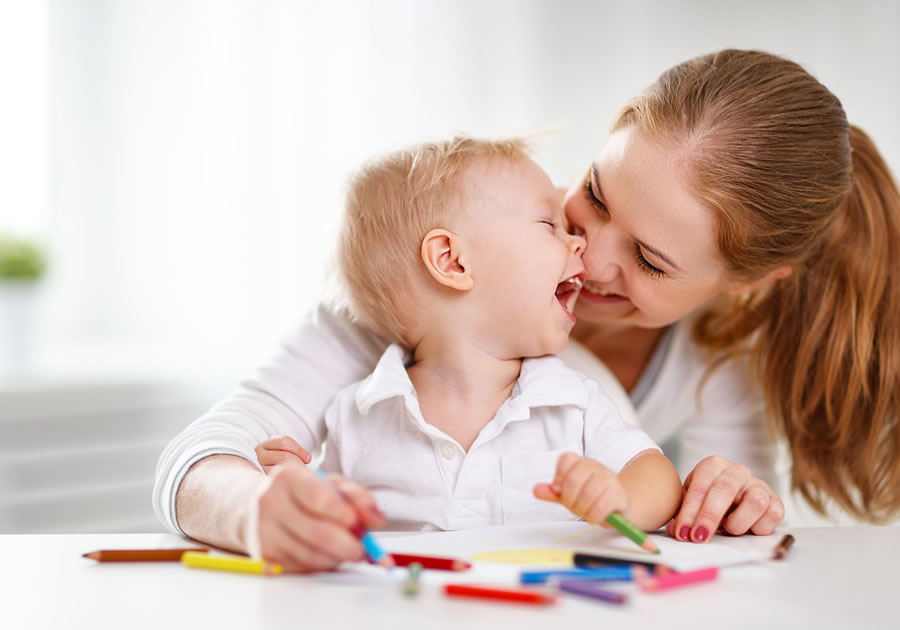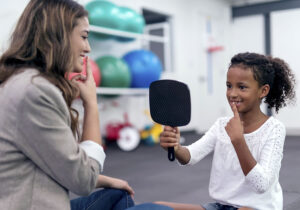The first year of a child’s life is a whirlwind of learning and growing. As a parent (no matter if he/she is your first child or your eighth), you are the bridge and advocate between your infant and the rest of the world of learning.
It is through you that your child’s needs are fulfilled and to you he/she looks for help interpreting all of the new stimuli in the multiple environments they are exposed to. This makes communication possibly the most important aspect of your baby’s development. While this often comes naturally, it is important to understand how infants communicate in order to ensure they’re on track for communication success.
Below are the social, language, and speech abilities that most infants begin to demonstrate in their first year of life.
1 month.
- Makes reflexive sounds such as crying, burping, and coughing
- May begin to make “mmm” and “nnn” sounds
- Responds to sounds in the environment, such as startling at loud noises
3 months.
- Makes cooing sounds such as “goo” and “kuh”
- Smiles at others, especially in response to being smiled at or spoken to.
- Quiets when spoken to
- Recognizes the primary caregiver’s voice
- May begin to enjoy patting books and focusing on pictures
- Responds to new sounds by quieting or showing excitement
6 months.
- Makes a greater variety in non-speech sounds such as squeals, trills, and blowing “raspberries”
- Babbles with a variety of vowel and consonant combinations such as “pah”, “boo”, and “muh”
- Babbles to get attention
- Watches another person’s face when they are speaking
- Behaves differently with strangers and familiar people
- Seeks and maintains eye contact
- Understands the difference between friendly and angry tones
9 months.
- Babbling begins to have more adult-like timing and vocal tone
- May begin to repeat syllables to make word-like combinations such as “baba” and “mama”, though these don’t yet have meaning attached to the sound
- More vowels and consonants are being produced, such as “eh”, “ih”, “t”, “d”, and “w”
- Understands simple requests and words for common objects
12 months.
- Produces his or her first word
- Continues to babble, but combines different syllables rather than reduplicated syllables (for example, “bakibo” instead of “bababa”)
- Sometimes speaks in “jargon”, or long strings of nonsense words that have adult-like intonation. Some strings may begin to sound like questions or exclamations
- Begins to use more consonants, including “h”, “s”, “y”
- Begins to show self-awareness by responding to his or her name and touching their face when looking in a mirror
- May follow one-step directions that include gestures
- Understands simple questions such as “What do you want?” or “Where is mommy?”

You know your child best. These are simple guidelines, but they have been researched heavily for many years in the field of speech-language pathology. Should you and/or your child’s primary healthcare provider see delays in any of these areas of speech-language development, please seek the guidance and expertise from a licensed speech-language pathologist. Many of us, including our practice, are happy to conduct a free screen to navigate alongside you. Early Intervention is instrumental.
References
Centers for Disease Control and Prevention. (2018, June 22). CDC’s Developmental Milestones.
Retrieved March 8, 2019, from https://www.cdc.gov/ncbddd/actearly/milestones/index.html
Lanza, J., & Flahive, L. (2012). Guide to communication milestones. East Moline, IL: LinguiSystems






